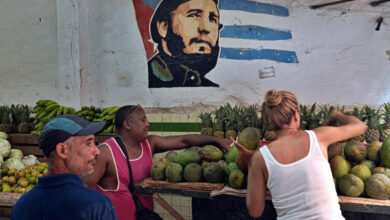Recognition of Care Work, What is Its Status in Latin America?
The Region Faces Great Challenges in Recognizing Care Work, An Issue that Affects Millions of Women. It is Time to Implement Plans that Allow the Protection of Domestic Workers and Caregivers.

Photo: Freepik
LatinAmerican Post | María Fernanda Ramírez Ramos
Listen to this article
Leer en español: Reconocimiento de trabajo de cuidado ¿cuál es su estado en Latinoamérica?
In general lines, care work could be defined as those tasks that were previously called domestic work. That is, those activities that are usually carried out inside homes, and seem to go unnoticed by society, but that are really essential for the development and protection of life. They are also a social engine with a strong influence on economic development. They include the care of those who are sick, the elderly, and children, as well as their upbringing.
However, until a few years ago, the socioeconomic impact of these tasks at a larger level began to be analyzed. For this reason, its classification as care work has been vindicated and the academy and governments have turned their eyes to the people, mainly women, who carry out this care work. In this regard, women tend to have paid jobs and also carry out care work within the home, without receiving financial compensation and complying with exhausting hours. Even worse, they may suffer discrimination in the labor sector, for example, for being mothers. Only Chile, Colombia, Guyana, and Saint Lucia in Latin America and the Caribbean have an explicit ban on companies asking women for pregnancy tests when applying for a job. Likewise, there are few companies that have effective policies that allow the reconciliation of work with the family and care environment.
A recent study by the United Nations has indicated that "universalizing licenses for the care of children and adults would generate more than 25 million jobs in Latin America" if they were applied in Argentina, Brazil, Chile, Colombia, Costa Rica, Mexico, and Peru. Likewise, he pointed out that it is urgent to generate and invest in policies that favor the creation of decent jobs and well-being in the care sector. In this regard, the report indicates that "women in Latin America and the Caribbean were the most affected globally by the crisis in the labor markets, and placed the region before the challenge of facing an unprecedented setback in gender equality at work".
These factors strongly impact the independence and economic autonomy of women, which in turn places them in positions of vulnerability in the face of violence, poverty, and hunger. Meanwhile, gender inequalities are further widening.
Indicators as revealing as the fact that paternity leave is not recognized in twelve countries in the region and that in 10 of those that recognize it, it is for less than 5 days, are the sample of a button. Likewise, "in most of the countries of the region, there is a considerable time lag between the end of licenses for the care of newborns and the beginning of statutory universal child care services or the beginning of compulsory primary education". This exposes families to a gap in child care.
We suggest you read: Violence against children in Latin America is up to 4 times higher than the average
The commitment of Buenos Aires: a step forward for care
The Buenos Aires Commitment was adopted by the region at an ECLAC Conference in which delegates from 30 countries plus members of various organizations participated, for a total of 1168 participants. In it, "care is recognized as a right of people to care, to be cared for and to exercise self-care based on the principles of equality, universality, and social and gender co-responsibility", as indicated by the Economic Commission of the United Nations for Latin America and the Caribbean ( ECLAC ).
This commitment is expected to be the first step for countries to commit to developing public policies that favor women, reduce inequalities and recognize care work. Similarly, more extensive and protected maternity and paternity leave, care networks for infants and the elderly or affiliation to the pension and social security system for care are some of the measures that must be taken.
Likewise, it is necessary to advance in the protection of domestic workers. "In eleven countries in the region—Bolivia, El Salvador, Guatemala, Guyana, Honduras, Mexico, Nicaragua, Paraguay, the Dominican Republic, Suriname, and Venezuela—the percentage of domestic workers in the informal sector exceeded 90 percent," according to ILO data, indicated in the ECLAC report.
A country that leads the way in care issues is Uruguay. It is the only country that achieves 100% effective coverage of maternity protection through monetary benefits. In addition, since 2015 it has a National Integrated Care System (SNIC), whose objective is to "guarantee the right of people in a situation of dependency to receive care in conditions of quality and equality, promoting the development of autonomy, care, and assistance to people in situations of dependency, as well as child development, within the framework of a model of co-responsibility between families, the State, the market and the community, as well as between men and women".
Undoubtedly, working for the claim of the care economy and for monetary recognition for the people who carry out these tasks is a step to reduce gender and social inequalities. Likewise, creating universal licenses that favor care tasks, without discrimination of sex, is a step to reduce inequalities, violence, and poverty.




